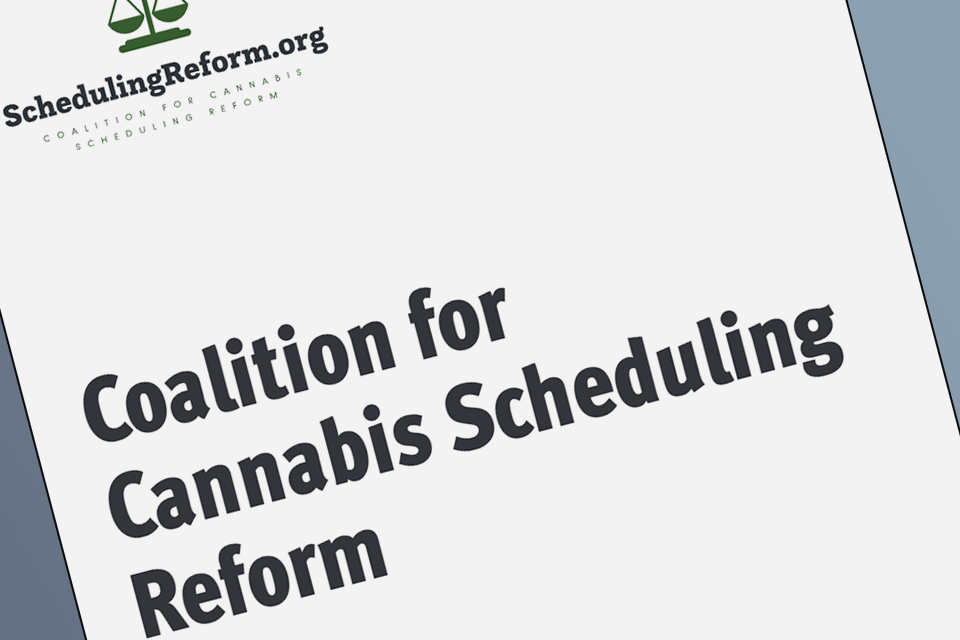Federally legalizing marijuana is both doable for the Biden administration and relatively easy, according to a new white paper that makes the case for reform.
The paper, released Monday by the Coalition for Cannabis Scheduling Reform, prioritizes “de-scheduling” – or removing marijuana from the list of federally controlled substances altogether – but also acknowledges that “rescheduling” marijuana to Schedule 3 or lower would be “a historic step along the path to necessary reform.”
The white paper was issued in the midst of the U.S. Health and Human Services’ ongoing review of marijuana’s status as a Schedule 1 narcotic, a review that President Joe Biden ordered last fall. The process has no set deadline for a final decision, but there have been hints a resolution may be announced later this year.
If that happens, it will be a transformative event for the U.S. cannabis trade, but what shape that transformation will take greatly depends on the outcome of the review.
The coalition argues in the paper that federal marijuana legalization in either form is long past due, and that it’s incumbent upon the U.S. Food and Drug Administration to issue a formal recommendation for cannabis to be moved from Schedule 1 – defined as any narcotic with “no accepted medical use” and a “high potential for abuse” – to Schedule 3 or lower.
Ideally the FDA would take it off the list completely.
The paper notes that it’s easier to die from a sugar overdose than from a THC overdose and estimated a person could die from sugar by consuming 20 pints of ice cream. To die from THC, according to the report, a person would need to “consume 1,500 pounds of plant material in 15 minutes.”
There also has never been a recorded fatality from a THC overdose, a stark contrast to many other drugs that are scheduled as safer and having an accepted medical use, including cocaine and fentanyl.
“Marijuana is plainly less dangerous than many drugs contained in schedules III, IV, and V, not to mention many consumer products and unscheduled products. It’s time for federal policy to reflect that reality,” the paper asserts.
But the coalition begrudgingly noted, “If FDA determines that it cannot find its way to recommending marijuana descheduling,” then rescheduling would still be a major help to the U.S. cannabis industry by nullifying 280E, the provision in federal tax code that bars marijuana companies from claiming standard business tax deductions.
However rescheduling would maintain a major legal disconnect between federal law and the 23 states that have legalized recreational marijuana, since federal statutes still have strict penalties for any business that traffics in federally scheduled narcotics, the paper noted.
“Even if marijuana were transferred to Schedule V, these provisions would make virtually every transaction in the adult-use marijuana market today criminal under federal law and therefore subject to criminal penalties,” the paper reads. “Descheduling is the only result that would remove marijuana from DEA’s purview and the CSA’s regime of federal criminal sanctions.”
Rescheduling could also result in requirements for all cannabis companies to register with the DEA so it can properly oversee the industry.
The DEA also has “broad discretion” to either issue or withhold “certificates of registration” to companies in the pharmaceutical supply chain, the paper notes, and to date the agency has “refused to grant them to entities that have violated federal law by participating in state-legal cannabis markets, regardless of their compliance with state laws.”
But if rescheduling is the ultimate decision that FDA lands upon, then the paper urges regulators to issue federal guidance for the industry, similar to the now-defunct Cole Memos, which were handed down during the Obama administration as rules of thumb for how states could run their marijuana markets without the DEA intervening.
Although the memos were rescinded under the Trump administration, many states still operate under the same guiding principles, such as preventing diversion to the illicit market and keeping cannabis away from children.
“American businesses need more clarity, not less,” the paper argues. (Full Story)

